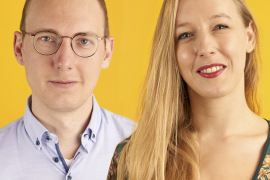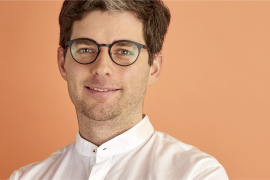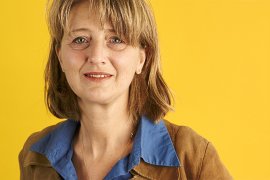Children and students combine their talents
Connecting people from entirely different walks of life and making sure they understand each other a little better. This ambition has inspired Michiel Bodt ever since he returned to lead the foundation he founded with fellow students Thekla Teunis and Hanneke Schreuders in 2009: Stichting Move. ‘Children are the creative minds behind all our projects. They’re the ones that make it all happen.’

It all started with a single project in Utrecht’s Hoograven neighbourhood. On the initiative of Michiel, Thekla and Hanneke, children from the neighbourhood and members of the student rowing association Orca teamed up to help the neighbourhood. The project resulted in the installation of playground equipment designed by the children, and also marked the birth of Stichting Move.
The foundation brings together children and students with the aim of making a concrete contribution to their neighbourhood or environment in cooperation with civil society organisations. Move is now active in eleven cities and offers several programmes aimed at developing children’s talents and improving their prospects in society. The goal: connecting people from entirely different walks of life who would otherwise never cross paths.

Talking rubbish bins
Michiel: ‘One of our programmes is Move Your World, in which students and young professionals help preparatory secondary vocational education (VMBO) students think about where their talents lie and how they can use these talents to help others. It’s so inspiring to see what happens. For example, a young man who picks up the phone without hesitation to call the hospital where his grandmother is, with the proposal to come organise an afternoon of games. He doesn’t think: “How should I go about this? And whom exactly should I speak to?” He just picks up the phone and calls the general number. I mean, isn’t that just amazing?
Children come up with ideas that adults could never think of. Talking rubbish bins, murals, picking up bottles to buy croissants for a homeless person; it’s brilliant to see. What’s also great is that they’re just as proud of a piece of playground equipment that cost €80,000 as they are of flower boxes that cost €80 to paint. And’, Michiel emphasises, ‘it’s a genuine exchange: students also learn a lot from the children.’

Can-do mentality
‘Thekla, Hanneke and I started out as friends, and we still are today. We were young and inexperienced, but we complemented each other well. Hanneke was focused on community participation and development. As a former School of Governance student, I knew a thing or two about getting government and private sector parties on board. And Thelka really has an incredible entrepreneurial attitude. Our can-do mentality really stood out in the welfare sector. The three of us were incredibly driven.
Paul Verweel was one of my greatest sources of inspiration. Paul had a formative influence on me, and really contributed to the Move Foundation by acting as a sparring partner and ambassador. He was always building connections. In fact, the theme “Building tomorrow together” would really suit him.’





